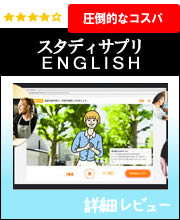先日から「Lordagsgodis: Sweden’s Saturday-only candy tradition -「ルーダスゴディス:スウェーデンの“土曜日のお菓子”の伝統」を読んでいます。

・「ルーダスゴディス:スウェーデンの“土曜日のお菓子”の伝統」(1)
・「ルーダスゴディス:スウェーデンの“土曜日のお菓子”の伝統」(2)
Promoting financial freedom
経済的自由のすすめWhile fizzy cola bottles, red jelly lips or salted liquorice might initially seem unlikely symbols of financial freedom, Tegsveden Deveaux says her family is far from alone when it comes to using these lördagsgodis staples as an early lesson in money management.
炭酸入りのコーラ、赤いゼリーの唇、塩漬けのリコリスなどは、経済的自由の象徴とは思えないかもしれないが、デヴォー氏はお金の管理方法を学ばせるべく、そうしたルーダスゴディスで定番の菓子を利用する家庭は少なくないと言う。
Penny sweets are typically among the first items children regularly spend money on if they’re given weekly pocket money, she says, which has been commonplace in Sweden since the 1960s.
量り売りの菓子は、毎週の小遣いで子どもたちが最初にお金を使うもので、スウェーデンでは1960年代から当たり前に行われているとか。
Around seven out of 10 Swedish children currently get a weekly or monthly allowance, according to 2020 data shared by Swedbank, one of the country’s high-street banks.
スウェーデンの大手銀行・スウェドバンクの2020年発表のデータによると、スウェーデンの子どもたちの10人に7人は、週または月に一度の小遣いをもらっている。
Six out of 10 parents surveyed said they and their children had some form of agreement about what their money should be used for.
そして10組中6組の親が、その使い道について親子で何らかの合意をしていると答えた。
Americo Fernández, a household economist and personal-finance podcaster for SEB, another major Nordic bank chain, agrees the lördagsgodis tradition is “definitely” a useful tool in helping Swedish children to understand the value of money.
北欧の大手銀行SEBのポッドキャスターであり家計経済学者のアメリコ・フェルナンデス氏は、スウェーデンの子どもたちがお金の価値を理解する上で、このルーダスゴディスの伝統は「間違いなく」有効なツールだと同意する。
“It’s difficult to talk to an eight-year-old small person and try to explain to them the importance of saving,” he argues.
「8歳の子供に語りかけ、貯蓄の重要性を説明するのは難しいです」と彼。
By contrast, giving children money to put aside for weekly sweets or other small luxuries can teach them about basic financial planning.
それに対して週に一度のお菓子やちょっとした贅沢のためにお金を貯めることは、子どもたちに基本的な資金計画を教えることになる。
“It’s [easier] to understand that if I give you 20 kronor, if you spend it now, you won’t have any more during the rest of the month, for example, or the week.”
「それよりも20クローネを渡して、もし今使ってしまったら、残りの月や週はもう何も使えないよという方が理解しやすいでしょう。」
子供たちに自分で考えさせて、予算のコントロールを学ばせる、そのためにルーダスゴディスがとても役立っていると。
日本はサラリーや支払いは月単位ですが、海外ではスウェーデンのように週単位のところも多く、それだとまた感覚が変わってきそうな気はします。
とりあえず一週間しのげばまた収入がある、これだと何とかなりそうな気がして、つい使っちゃう人も出てくるかなと(結構そういう人も居ると思う・笑)。
その点、次は一か月後となれば、慎重にならざるを得ません。
この、資金を自分でコントロールせねばならない期間が長ければ長いほど、メンタル面も含めて資金管理としては難しくなるわけで、可能であれば年単位でやると、最大の効果がありそうな気がします。
理由は単純明快!「少ないコストでしっかり楽しく学べるから」。
私自身の経験(高機能でビックリ)をびっしり書いていますので、良かったら読んでみてください。
下のバナーからどうぞ!






